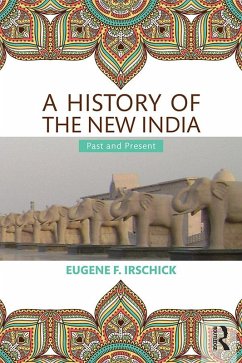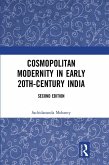- Mughal warfare and military developments
- The construction of Indian culture
- Indian, regional and local political articulation
- India's Independence and the end of British Rule
- Women and governmentality
- The rise of the Dalit movement
As well as a detailed timeline that provides a useful overview of key events in the history of India, a set of background reading is included after each chapter for readers who wish to go beyond the remit of this text. Written in an accessible, narrative style, the textbook will be suitable in courses on Indian and South Asian history, as well as courses on world history and South Asian studies.
Dieser Download kann aus rechtlichen Gründen nur mit Rechnungsadresse in A, B, BG, CY, CZ, D, DK, EW, E, FIN, F, GR, HR, H, IRL, I, LT, L, LR, M, NL, PL, P, R, S, SLO, SK ausgeliefert werden.
"In this accessible textbook, Irschick has incorporated Mughal India as Early Modern India instead of focusing solely on colonial and post-colonial India. With his own extensive research, he has been diligent in providing examples from both north and south India, and includes examples from areas such as Punjab and Kerala that many overview histories frequently ignore." Barbara Ramusack, University of Cincinnati, USA









